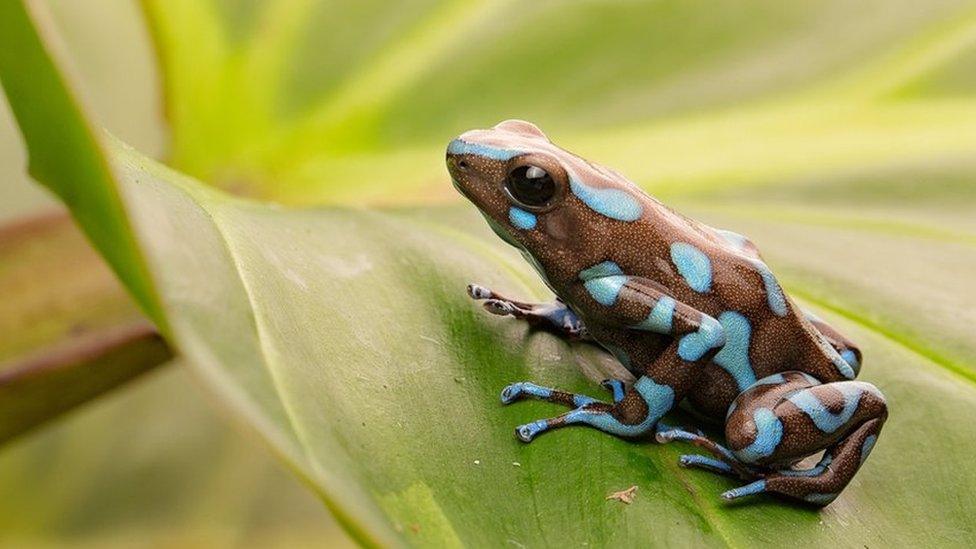Did snakes survive the asteroid that killed the dinosaurs?
- Published
- comments
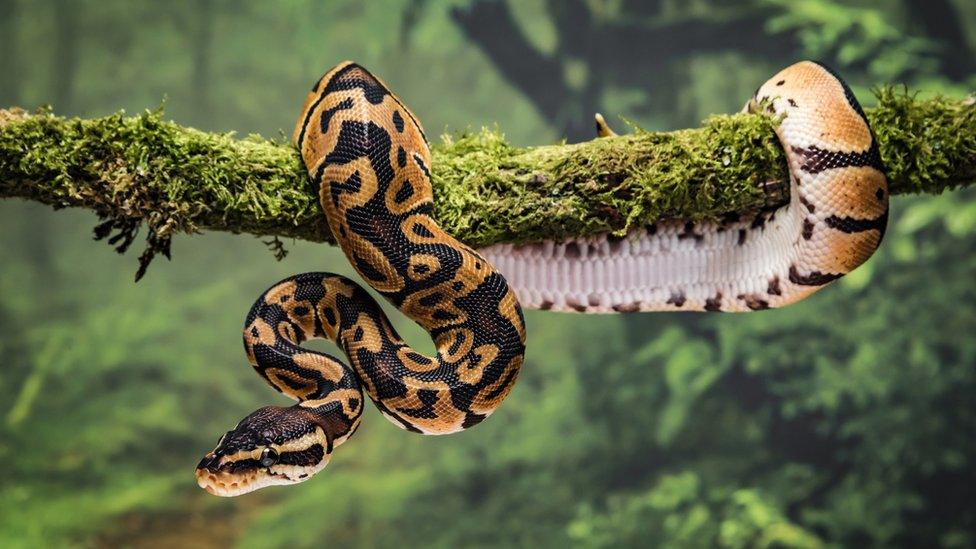
A study suggests that all snakes on Earth evolved from a handful of species that survived the giant asteroid hitting the earth 66 million years ago.
The impact of the asteroid wiped out the dinosaurs, but somehow these snakes managed to survive.
The researchers say the ability of snakes to shelter underground and go for long periods without food helped them overcome the destructive effects of the impact.
They then took advantage of the lack of other animals around to exploit new habitats and new prey, and even move into new continents.
As time went on this led to more diversity among the snakes as they developed new traits and had young which had characteristics like vipers, cobras, garter snakes, pythons and boas.
This helped them develop into the 4,000 living species that are around today.
Analysing fossils
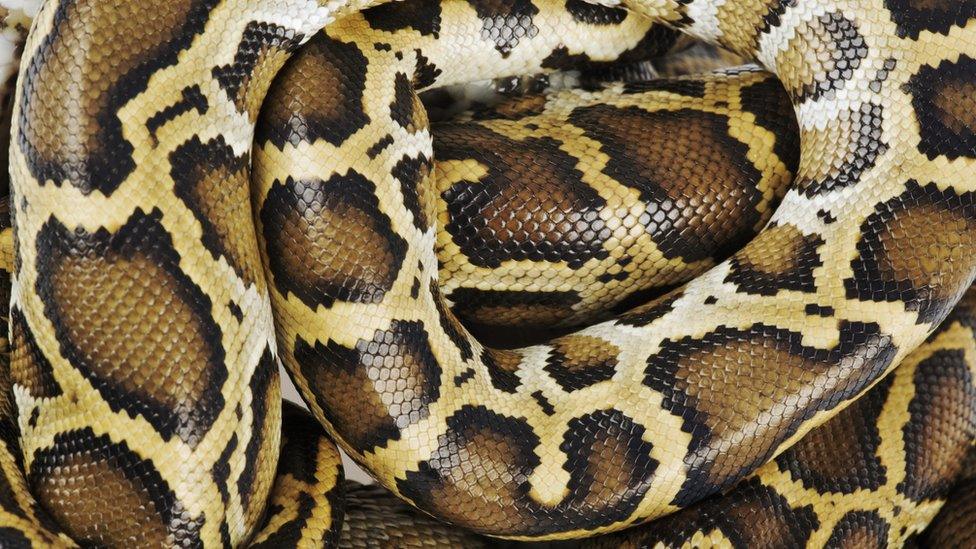
Scientists at the University of Bath and collaborators from Bristol, Cambridge and Germany used fossils and analysed genetic differences between modern snakes to reconstruct their evolution.
The analysis helped to pinpoint the time modern snakes evolved.
The study also suggests snakes began to spread across the globe around this time.
Dr Nick Longrich, from the Milner Centre for Evolution at the University of Bath said: "Our research suggests that extinction acted as a form of creative destruction.
"By wiping out old species, it allowed survivors to exploit the gaps in the ecosystem, experimenting with new lifestyles and habitats," Nick added.
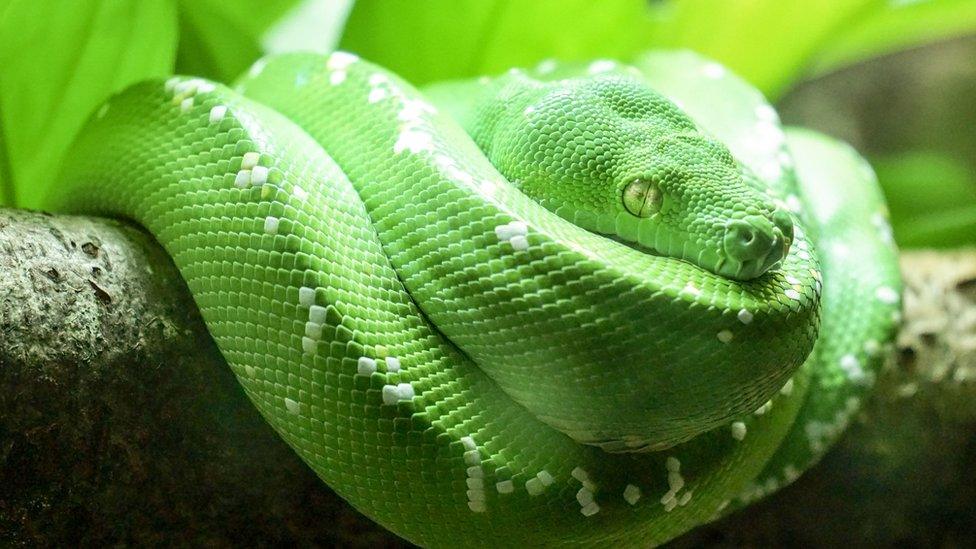
Green Emerald snakes are a non-venomous boa species found in the rainforests of South America, where they can easily blend into their environment
"This seems to be a general feature of evolution - it's the periods immediately after major extinctions where we see evolution at its most wildly experimental and innovative.
"The destruction of biodiversity makes room for new things to emerge and colonise new landmasses. Ultimately life becomes even more diverse than before."
- Published13 January 2021
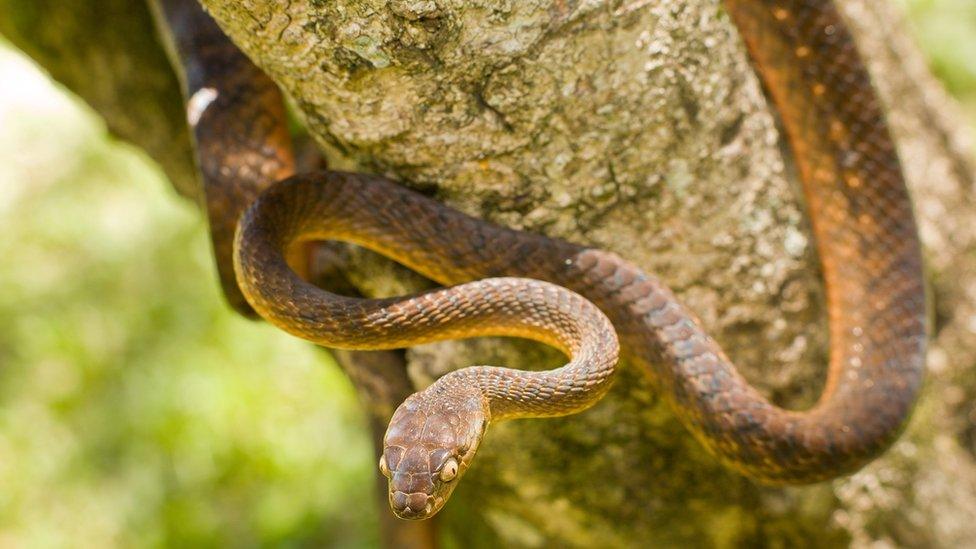
- Published14 February 2020
